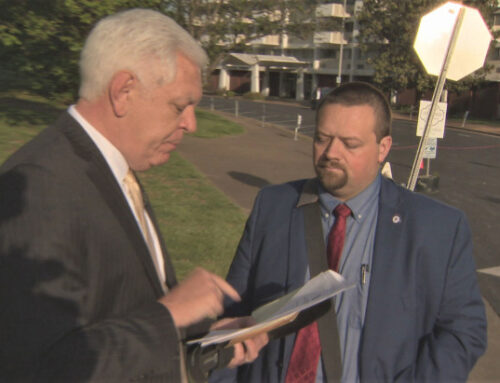WUOT reporter obtains White House COVID-19 report
WUOT 91.9 FM reporter Claire Heddles demonstrated last week that making a public records request to the right person is sometimes all it takes.
The White House Coronavirus Task Force is distributing to governors a weekly report on the COVID-19 epidemic. The task force does not make the reports available to the public, but they have been released in some states by local and state officials.
In Tennessee, however, Gov. Bill Lee downplayed the importance of releasing those reports in a press conference last week with Health Commissioner Lisa Piercey. And the Center for Public Integrity, which has been compiling the task force reports from various states, lists Tennessee among those states that haven’t responded to its requests for the reports.
Heddles at WUOT in Knoxville was interested in getting the report. She said she didn’t bother with a public records request to the governor’s office, thinking it would take too long and being uncertain whether she could get it.
Instead, she worked her local beat. In July, she had written a story about a White House task force report that had listed Knox County in a “yellow zone” that called for restrictions such as bar closures. At the time, the local health department said they had been unaware of the White House task force recommendations. She decided to see if this time the health department had received the weekly White House task force report.
On Thursday, Knox County Health Department Director Martha Buchanan confirmed they were in fact now receiving those reports. So Heddles put in a public records request. She received the Oct. 11 task force report on Friday.
The White House report was notable in that it called for Tennessee to implement a statewide mask mandate. The governor has declined to take such a step, saying local officials are in the better position to make that call.
If a journalist had put in a public records request to the governor’s office, it’s quite possible the report would have been produced. The Associated Press reported that while the task force reports have not been regularly released, the governor’s office has produced them when requested by The Associated Press.
Still, it’s a good lesson in the basics of Tennessee’s public records law.
The statute defines a public record as “all documents, papers, letters, maps, books, photographs, microfilms, electronic data processing files and output, films, sound recordings, or other material, regardless of physical form or characteristics, made or received pursuant to law or ordinance or in connection with the transaction of official business by any governmental entity…” (my boldface).
In other words, when it was received by the governor’s office, it became a public record under state law. When it was received the the Knox County Health Department, it likewise was a record subject to disclosure.




